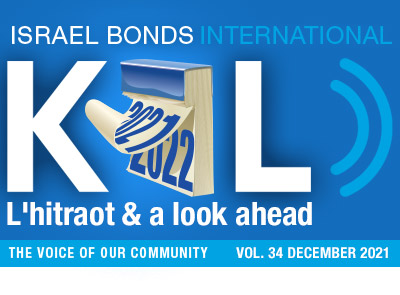Joie de Vivre for the New Year
Babeth Zweibaum
Harnessing the Future for Bavarian Jewish Students
Michael Movchin
Teamwork: Essential in 2022!
Thalia Tartakovski
Hopes and Expectations for 2022
Jacob Vince
What the next year brought
Sarah Emanuel Holder
Next year: full of surprises?
Gerald Hetzel
A New Women’s Division is Born!
Patricia Lisbona Fuchs
Hopes-and Fears-for 2022
Tony Pearce

Joie de Vivre for the New Year
Babeth Zweibaum
President, Bnai Brith Loge Anne Franck.
France
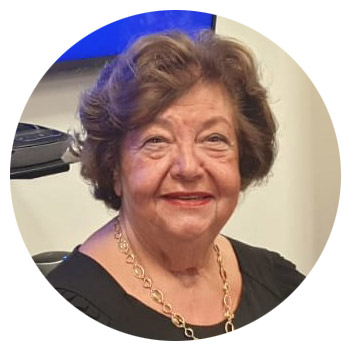 During the festival of Chanukah, the symbolic associations with flame, light and life can be seen as messages both to and
During the festival of Chanukah, the symbolic associations with flame, light and life can be seen as messages both to and
from the Jewish people.
The victory of the small flask of pure, new oil symbolizes the conservation of energy, the spiritual survival of the Jewish flame, the victory of light over darkness, and the victory of the continuity of from generation to generation.
In these eight days of the Festival of Light, the candles lit each day and their rise to the fullness of the chanukiah symbolize the blossoming, the vigorous life, the inauguration of a new time, and the splendour of the Jewish faith, with its universal message.
The victory of the continuity of Judaism from generation to generation.![]()
Historically, Zionism makes the Maccabean revolt a key moment in its history and celebrates its happy ending. Songs and works celebrating the "new Jew" carry a message of joie de vivre, of hope that everything will become possible:
That in the year 2022, scientific research will bear fruit in order to overcome the persistent global pandemic;
That in the year 2022, men and women will carry out innovative projects that bring hope;
That in the year 2022 all lights will shine to put an end to the darkness!

Harnessing the Future for Bavarian Jewish Students
Michael Movchin
Chairman, Association of Jewish Students in Bavaria e.V. (VJSB)
Germany
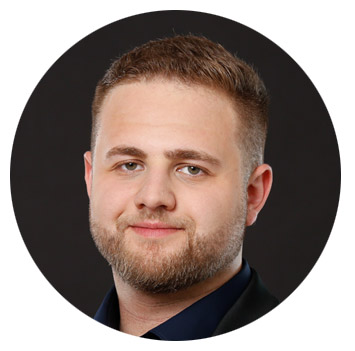 With the inevitable turn of the year approaching, many grapple with what has been achieved over the past year. Some will be happy, others less so. Those who look back on a successful year will hope to continue their success in the future, and everyone else will be motivated to carry on. Everyone knows the catchphrase: "It will all be better next year!"
With the inevitable turn of the year approaching, many grapple with what has been achieved over the past year. Some will be happy, others less so. Those who look back on a successful year will hope to continue their success in the future, and everyone else will be motivated to carry on. Everyone knows the catchphrase: "It will all be better next year!"
A platform for nationwide networking.![]()
For the Association of Jewish Students of Bavaria, December is a month used to review the year that has just passed. We were presented with new challenges in 2021, as well as new possibilities and opportunities. The virus, of course, had our attention. Though our programs had to be adjusted, we managed to hold a variety of events that were cultural, political and religious in nature, from social Shabatons to political talks. We hope that they proved appealing to young Jewish adults in Bavaria.
What will the next year be like, or how would we like 2022 to look? Of course, we want to get back to normal. The primary task of our association is to nurture Jewish life for young people in Bavarian communities, to provide a platform for nationwide networking and to strengthen young Jewish political activism. We want to keep working on this in 2022. Exciting events are planned, where lively exchanges with both Jewish and non-Jewish participants and institutions take place on a local and national level.
Resilience is important.![]()
At the moment, a third lockdown is imminent. With a view to the current situation and the future, the buzzword resilience is important. Resilience describes the ability to deal with changes or to survive phases of high stress and crises — in order to emerge stronger and better from them. This is exactly what we strive for: to emerge stronger from the crisis through the experience we have gained.

Teamwork: Essential in 2022!
Thalia Tartakovski
President of the Women’s Federation of the Jewish Community of Mexico
 The Women’s Federation of the Jewish Community of Mexico is the umbrella organization for most of the volunteer women´s organizations within our Jewish community.
The Women’s Federation of the Jewish Community of Mexico is the umbrella organization for most of the volunteer women´s organizations within our Jewish community.
We represent fifty-two institutions that work in different areas for the welfare of our Jewish community, our beloved Mexico and for Israel.
We bring together hundreds of Jewish women volunteers from each organization who are constantly committed to the well-being of others; they carry out their selfless work and dive wholeheartedly into their tasks. Most importantly, they are perceived as women capable of coordinating, directing, implementing, and effectively offering
their assistance.
An increasingly stronger and more committed volunteer taskforce of women![]()
For over fifty years, the Women's Federation of the Jewish Community of Mexico has managed to create an increasingly stronger and more committed volunteer taskforce of women, who are bound together under a common goal, which is creating bonds of union between its organizations, and thus maximizing the help that is always needed.
Over the years, we have demonstrated that the presence of women and the work they do is always necessary and yields high results. Thus, we have managed to create links among the entire organized female sector, forming alliances that enable us to work together in harmony toward the future.
Our path is focused on social assistance today more
than ever before.![]()
As president of the Women's Federation, I contemplate a difficult year 2022, as the health and economic needs of the community and general population of the country are becoming increasingly complicated. But I know that, with teamwork, we will manage to deal effectively with the problems that may arise in the future.
We can and must continue to meet the needs to which we are already committed. Our path is focused on social assistance today more than ever before.
Women in Mexico have gained a lot of respect and recognition during the last few decades. There is still yet a lot to be done, but empowered with talent and enthusiasm, they are sure to reach their full potential.
I also visualize a future with a wider diversification of roles, which will eventually lead to better positioning of women’s place in society in general.
I believe that the year 2022 will be one filled with a lot of work and struggles. But I also believe that we have our work set out for us, and we are not a nation prone to giving up!

“Hopes and Expectations for 2022”
Jacob Vince
Chief Executive,
Christian Friends of Israel UK.
 As I ponder these words: “hopes and expectations for 2022,” I am reminded of similar words given to the prophet Jeremiah: “I know the plans that I have for you … plans to give you hope and
As I ponder these words: “hopes and expectations for 2022,” I am reminded of similar words given to the prophet Jeremiah: “I know the plans that I have for you … plans to give you hope and
a future” (Jeremiah 29:11).
Often quoted out of context, they were pronounced during a time of considerable upheaval and danger, particularly as concerns
impending deportation.
Even so, Jeremiah was instructed to buy some land, recorded in Jeremiah 32:1-15, indicative of the promise of land given, and repeated so often as a covenant promise that one could even deem it a bond.
An aspect sometimes missed in the story is how Jeremiah was helped by a gentile friend, Ebed-Melek. Certain officials did not favour Jeremiah’s words and he was thrown into a cistern with sinking mud at the bottom. This is where Jeremiah would have remained were it not for the intervention of Ebed-Melek, a Cushite. You can read the story
in Jeremiah 38:7-13.
It was the right thing to do.![]()
Ebed-Melek might easily have been forgotten, but he had done the right thing because it was the right thing to do. In the postscript, when the deportation took place, Ebed-Melek was remembered and rescued, as recorded
in Jeremiah 39:15-18.
There was a return from the deportation following Jeremiah’s day, which was to take place seventy years later, something that Daniel, the visionary, realised and recorded in his writings.
A return took place then, but eventually a far longer period of dispersion happened, till a promise given by the UK government through Lord Balfour in 1917 led to the establishment of the State of Israel in 1948. There were gentiles who assisted then, and today, as Christian Friends of Israel in the UK, one way we can follow in this honourable tradition is through promoting Israel bonds.
The amazing story of Israel is predicated on two promises— or bonds— given to Abraham, of a land and a family line, the promised land of Israel and Israel’s promised Messiah. These promises are threads found throughout the unfolding words of Bible from the law, through the prophets and the psalms, and as Christians, we see these two promises continue into the teaching of the apostles.
I guess today we also have a period of upheaval as the Covid 19 virus, vaccines and variants, vie with each other. May we draw comfort and strength in the words given to Jeremiah so long ago of plans to give “a hope and a future,” and all that this means for Israel and for us.

What the next year brought
The year after I visited the Refusniks
Sarah Emanuel Holder
United Kingdom
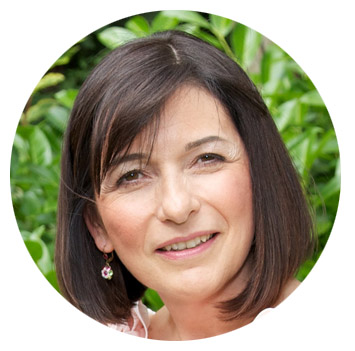 At the conclusion of the Passover Seder, we express a hope for “Next Year in Jerusalem.” For Jews who are lucky enough to live in Jerusalem, their wish is to live in peace with their neighbours. For those of us who visit Israel once a year for the holidays, it is a prayer that we should be able to continue this tradition.
At the conclusion of the Passover Seder, we express a hope for “Next Year in Jerusalem.” For Jews who are lucky enough to live in Jerusalem, their wish is to live in peace with their neighbours. For those of us who visit Israel once a year for the holidays, it is a prayer that we should be able to continue this tradition.
However, for Jews in the Former Soviet Union during the 1970s and 1980s, it was an even more heartfelt and emotive prayer. During that period, requesting an exit visa to leave “Mother Russia” was punishable by at best losing one’s job, or at worst by being sent to internal exile in Siberia. These Jews became known as refusniks, as they had been refused exit visas and were then severely ostracised by the authorities. The only thing they knew the next year would bring would be further restrictions and hardship.
In 1984, at the age of 19, I had the privilege of meeting Ernie Hirsch in London. For many years, Ernie was committed to helping Jews in the Soviet Union survive. He successfully raised vital funds to pay the travel expenses for UK Jews who wished to visit the refusniks, as well as to buy essential items for those living in extreme poverty.
In May 1984, Ernie arranged for me and another volunteer, Yocheved Kahn, to travel to Moscow. We first had to obtain new passports, as any travel documents already displaying an Israeli stamp would be met with an automatic visa refusal. Once we had obtained our new passports, we made applications for entry visas, which arrived
shortly thereafter.
Strangers on the street were hesitant to engage with us.![]()
We began our evening meetings with Ernie, who briefed us extensively on the risks we were taking and what items we were permitted to take into Moscow. We were taught how to communicate discreetly, to not discuss sensitive issues in our hotel room, which might contain listening devices, and to be careful if we were followed. If we adhered to Soviet protocol, we would not endanger ourselves or the people we were to meet.
Ernie filled our suitcases with powdered baby formula, children’s clothing, adult jeans, and a video camera that could be sold on the black market to provide a needy family with vital funds to survive for a month. Our suitcases were packed, but we hardly resembled tourists who were travelling lightly for a week of sightseeing.
In May 1984, we arrived at Sheremetyevo International Airport. We were the only two passengers on the flight who were detained at customs. The customs officers emptied our suitcases and asked us many questions. Despite having been well briefed, we nevertheless found the experience intimidating, but we were on a mission that we knew had certain risks attached.
After arriving at the Intourist Hotel close to Red Square, we were to meet our main contact on the first day at Sokol Station. I remember the grandeur of Moscow’s subway system, the wide streets and vast public squares. We struggled to read the Cyrillic alphabet, and strangers on the street were hesitant to engage with us.
They knew our visit meant they had not been forgotten.![]()
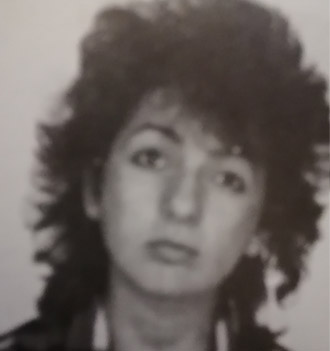 After meeting that contact and subsequently visiting his family at their home, we arranged to visit many refusnik friends during the week. Each family we met had similar stories of being refused exit visas, losing their jobs, and struggling to make ends meet. Many of them spoke Hebrew surprisingly well, even though they had never travelled to Israel. They knew our visit meant they had not been forgotten, and we would continue to campaign for them to leave the Soviet Union and live their lives freely.
After meeting that contact and subsequently visiting his family at their home, we arranged to visit many refusnik friends during the week. Each family we met had similar stories of being refused exit visas, losing their jobs, and struggling to make ends meet. Many of them spoke Hebrew surprisingly well, even though they had never travelled to Israel. They knew our visit meant they had not been forgotten, and we would continue to campaign for them to leave the Soviet Union and live their lives freely.
Little did we know what the next year would bring. In June 1985, a couple of days after my wedding, I received a call from the famous historian Sir Martin Gilbert, telling me the good news that he was on his way to Vienna to greet some mutual friends who had been given permission to leave Moscow, and were en route for a flight to Tel Aviv. The new Soviet president, Mikhail Gorbachev, had introduced the practices of glasnost (the policy of more open and consultative government) and perestroika (the policy of restructuring or reforming the economic and political system), paving the way for thousands of Jews to leave the Soviet Union and to emigrate to Western Europe, the USA, and Israel.
Those seven days in the Former Soviet Union taught me to appreciate being able to live freely as a Jew and in a democratic state. As this year ends, let us hope and pray that what next year brings will be better health and no further curbs on our freedom.

Next year: full of surprises?
Gerald Hetzel
Germany
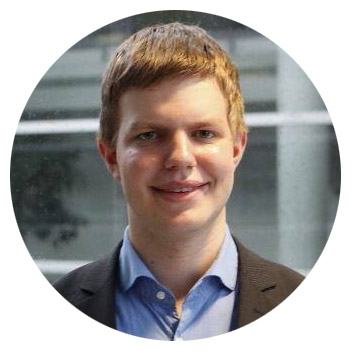 The year 2022 is approaching, and I wonder what changes it will bring for myself, Israel, the U.S., and the world.
The year 2022 is approaching, and I wonder what changes it will bring for myself, Israel, the U.S., and the world.
Personally, I hope that my organization, “Isralearn,” which I founded with my Israeli partner a few years ago, will grow next year, reach new audiences, and begin new formats.
Maybe even more countries in the Middle East will decide to estalish friendly relations with the Jewish State.![]()
On a more global level, I´m interested to see how the transformations that began last year will continue to evolve. The State of Israel has had a new government for six months now. So far, although the coalition only has a slight one-seat majority, it has not yet broken, and has even managed to pass a new state budget—something the previous coalition failed to do. But next year, according to the coalition agreement, Prime Minister Bennett must give the position of prime minister to Yair Lapid. In a recent interview, Bennett mentioned that this is unlikely to happen because the government might collapse earlier. It seems evident, based on this remark, that the current prime minister does not believe his government will last until that transition can take place. A collapse of the coalition would bring new elections. This would be problematic for Bennett, given that in all recent polls, his own party would not pass the threshold for entering parliament. Also, the head of the opposition and the previous prime minister, Benjamin Netanyahu, is waiting for his chance to regain power. However, Israeli politics is always full of surprises, so maybe something completely different will happen.
The support for Israel has great bipartisan backing.![]()
Despite the domestic challenges, Israel will continue to work on its new peace agreements with Arab states, strengthen existing relationships, and build new ones. Maybe even more countries in the Middle East will decide to establish friendly relations with the Jewish state.
The U.S. will likely continue its retreat from international politics, with its attention being devoted inward. I suspect the midterm elections will increase the already heated political debate and division, and the current administration won´t enter into risky missions abroad. Luckily, the support for Israel has great bipartisan backing.
I doubt the problematic coronavirus will stop plaguing the world in 2022. This pandemic has been by far the most challenging issue for all countries in the last two years, and it is going to continue appearing in waves and developing new mutations. Hopefully, effective medical treatments can be found to prevent the high mortality rates. But lockdowns and travel restrictions will likely no longer be implemented —especially by Israel, which banned the entry of all foreigners at the height of the pandemic.
Many people, including myself, suffered the last two years from not being able to see their family and friends abroad. For us, travel restrictions are not only an obstacle for holidays, but they also prevent us from seeing our loved ones. In my family, two weddings are planned for the summer. We can only hope that the celebrations can take place and all guests will be able to attend.
What I hope the new year will bring to all KOL readers is a happy and healthy 2022!

A New Women’s Division is Born!
Patricia Lisbona Fuchs
Brazil
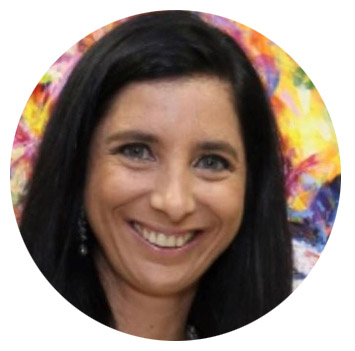 The year 2021 was a turning point in my life. Due to the pandemic, I decided to commit myself to volunteer work only, and despite all the difficulties, my fellow volunteers and I managed to accomplish a great deal. My involvement in many Israel-related institutions gave me
The year 2021 was a turning point in my life. Due to the pandemic, I decided to commit myself to volunteer work only, and despite all the difficulties, my fellow volunteers and I managed to accomplish a great deal. My involvement in many Israel-related institutions gave me
great satisfaction.
Incredible women, all eager to start working as volunteers for Israel Bonds.![]()
At the end of the year, I was invited to be part of the birth of the Women’s Division of Israel Bonds, (Israel Bonds WD) in Brazil. We managed to gather a wonderful group of incredible women, all eager to start working as volunteers for Israel Bonds.
For 2022 I am very optimistic! We plan to launch the Women’s Division with a large event, and we have a lot of great ideas to implement for the rest of the year. With the stabilization of the pandemic, we are hoping to stage a number of presentations and gatherings, and I am even planning a trip and a WD meeting in Israel during July.
A year to plant and to harvest.![]()
Brazil is starting its journey to economic and social recovery, and I believe that, since presidential elections are scheduled in 2022, the outlook will be very good for our country. Some opportunities in my events and promotions business are starting to reappear, so I will try to balance my volunteer and professional work. I feel that 2022 will offer us great prospects and will be a year to plant and to harvest!
If we manage to execute all the great ideas we have for Israel Bonds WD, we will have a very strong voice
here in Brazil.

Hopes —and Fears—for 2022
Tony Pearce
Pastor of The Bridge Christian Fellowship, London, NW11 0EH
United Kingdom
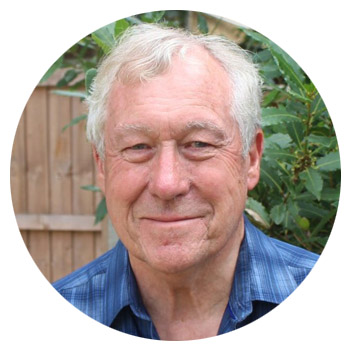 As a Christian supporter of Israel my hope is:
As a Christian supporter of Israel my hope is:
- that Israel and Jewish people around the world may live in peace and be protected from those who wish them ill
- that Christians, especially in the Muslim Middle East, Africa and China, may be free of persecution and the threat of being
wiped out - that the Covid crisis may come to an end without our basic freedoms being taken away from us
- that the Messiah may come in spirit or in person to bring peace and love to the hearts of people.
We need to have hope and speak out for goodness and truth![]()
My fear is that the opposite may happen: that we may see an increase in antisemitism, war on Christians increasing in many places, and even physical war between Israel and Iran as a result of the nuclear issue, as well as conflict with Russia over Ukraine, and China over Taiwan. I also fear that the Covid crisis will go on and on, ending with a new form of tyranny seeking to control us all.
In any case, we need to have hope and speak out for goodness and truth, as the prophet wrote: ‘The Spirit of the Lord is upon me because he has anointed me to preach good tidings to the poor, he has sent me to heal the broken-hearted, to proclaim liberty to the captives, and the opening of the prison to those who are bound.’ (Isaiah 61.1)
